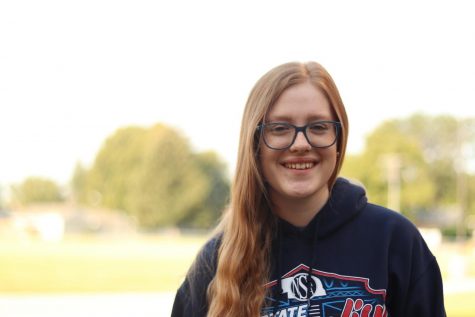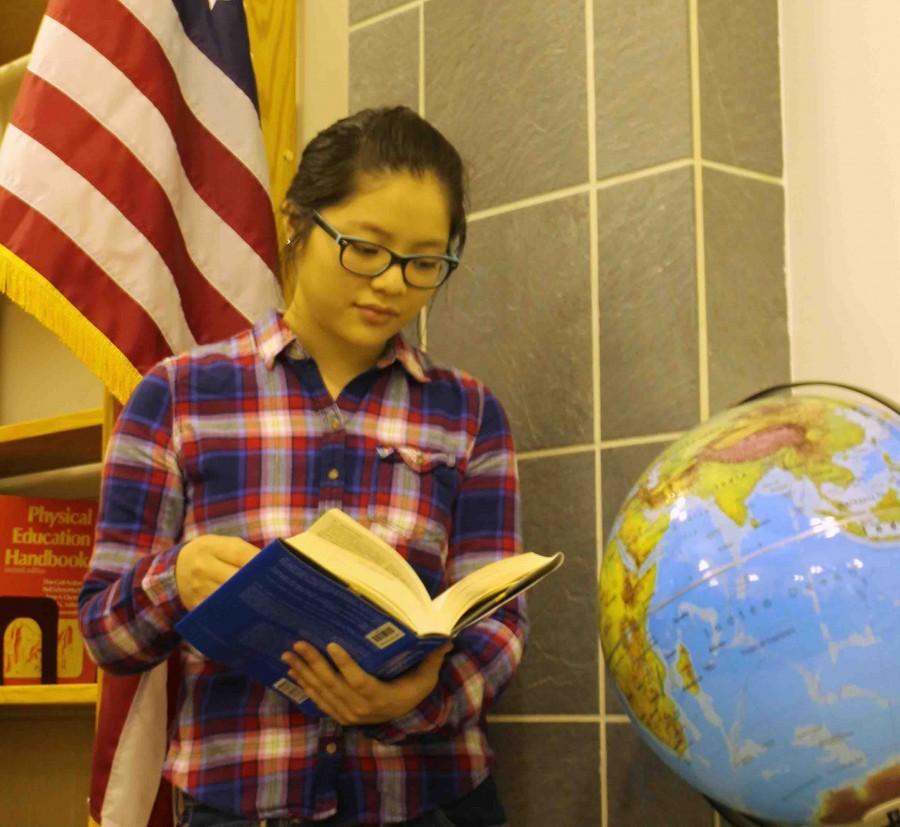Naturalization
The road to America
“My parents wanted me to be a citizen, so I guess that’s a thing I have to do,” said senior Feng Ying Wang. And that’s exactly what she did.
“I had to wait until I [was] 18-years-old, and I think you have to live in the United States for four or five years,” she said. Last September was when she really started to do her research on becoming a U.S. citizen. “I asked a lot of questions to my teachers, [like] Mrs. Martinez, to make sure I’m correct,” she said. Wang began her application after the five years she lived here. “I had to be prepared well, so I [could] pass the test,” she said.
Around September 29, Wang sent in her application for a naturalization interview, the first step to becoming a citizen. “When you mail your application, you also have to send the check or money,” she said. The test fee is nearly $700. About a month after she sent in her application, the next step was to give copies of her fingerprints to the Omaha immigration office. That left the hardest part– the test itself.
Wang studied from a citizenship book with potential test questions. “I read it so many times the night before I took it [the test],” she said. “I was just nervous.” She was the first person to take the test on January 12, at around 8 a.m.
The first thing she did before her interview was take an oath promising to tell nothing but the truth. After that, Wang and the interviewer reviewed her application to make sure none of the information had been changed, and that it was all correct. They also asked her questions like if she had abused anybody, been to jail, or if she had a royal title in her home country.
After double-checking the information, she took the civics test, the first part of the naturalization test. There was a total of 10 questions and she had get six correct to pass it. “A lot of Americans say that it’s hard, but when you’re prepared, it’s not very hard,” Wang said, “I feel like if you’ve taken the American government class, you would get 80-90% correct.”
If you pass that part, they continue onto the tests that inspect your ability to read and write the English language in two parts. On these parts of the test, you have three attempts to get one correct in order to move on. They start off with a reading test where they hand you a sentence to read aloud. If you can do that, you then have to transcribe, or write down, an English statement given by the interviewer. If you do successfully pass those three measures, you’ve passed the naturalization test! All that is left is to take your oath promising loyalty to the United States of America.
Usually people take their oath a few days, maybe even weeks after the initial test. “I’m pretty lucky,” Wang said because she got to do hers the same day. “I feel guilty to my country,” she said, “I gave up my citizenship to China.” But she’s also really happy.
“I felt like the pressure on my shoulders, released,” she said, “My dad is really happy I passed the test [too.]”

Haley McKain 2018
Co-Editor in Chief
A little bit about me
I cry all the time. Not always in a bad way or anything, but when I’m mad, sad, and especially...


Paige Christenson • Feb 8, 2016 at 10:38 AM
Haley McKain did a very nice job on the article Naturalization. The article really caught my attention because it was a student from the school. The article did a great job of explaining the process of becoming a U.S. citizen and all the hard work that it takes. I also liked how it gave me a visual picture in my head of taking the test and having to be interviewed. Having interviewed a student from our school made the article relatable.